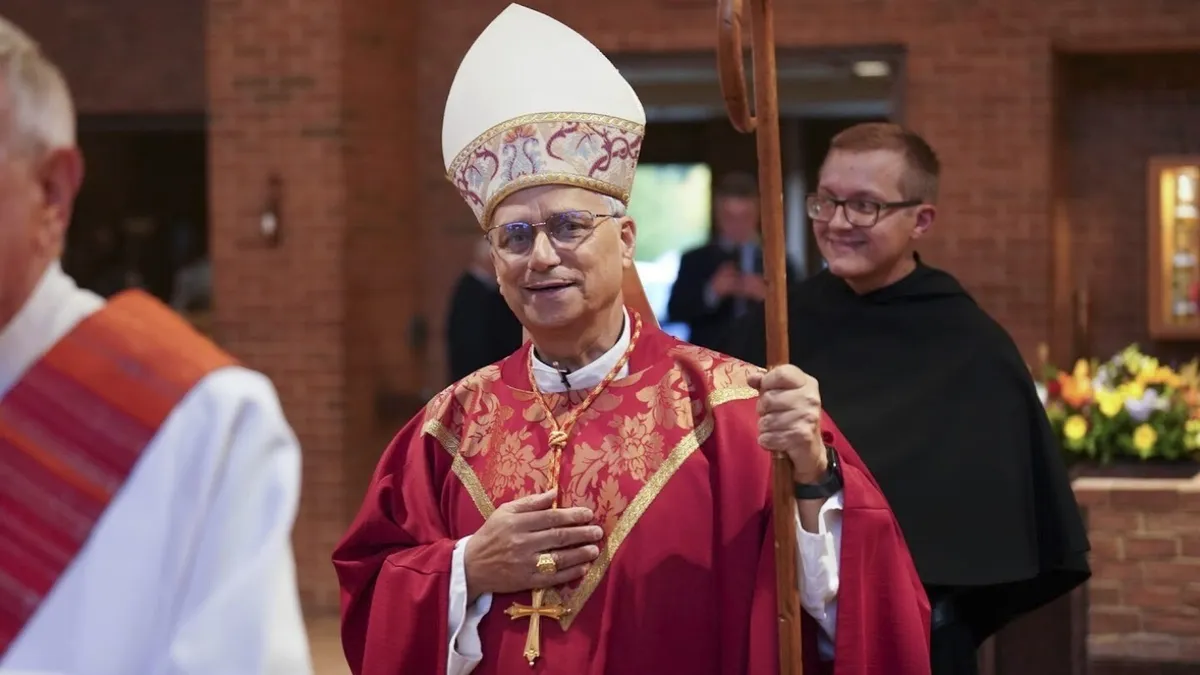
In an intriguing turn of events, the recent election of Pope Leo XIV has uncovered a profound connection to New Orleans that has captivated genealogists and historians alike. Jari Honora, a noted genealogist based in New Orleans, became fascinated by the pope's French-sounding last name, Prevost, and subsequently embarked on a quest through archival records. His research revealed that all four of Pope Leo XIV’s maternal great-grandparents were identified as “free people of color” in Louisiana, according to 19th-century census data.
This lineage places the pope firmly within the Creole culture of Louisiana, a rich blend of French, Spanish, African, and Native American influences. Honora expressed pride in this discovery, stating, “It was special for me because I share that heritage and so do many of my friends who are Catholic here in New Orleans.” As a historian at the Historic New Orleans Collection, Honora believes that Pope Leo XIV’s election represents a significant opportunity to uplift the profile of Black Catholics and unify the global church.
Interestingly, Pope Leo XIV may also have ancestral ties to Haiti. His grandfather, Joseph Norval Martinez, is believed to have been born there, although historical records present some inconsistencies. Nonetheless, Honora notes that Martinez’s parents, the pope’s great-grandparents, were residing in Louisiana as early as the 1850s, contributing to the intricate cultural tapestry of southern Louisiana.
Andrew Jolivette, a professor of sociology and Afro-Indigenous Studies at the University of California, Santa Barbara, has also explored the pope’s ancestry. He highlights how the pope's Creole roots reflect the complex identities held by many Creoles, including a connection to Cuban ancestry on his maternal side. “There are a number of firsts here and it’s a matter of pride for Creoles,” Jolivette remarked, emphasizing the importance of recognizing the Latino heritage within the context of Creole identity.
The journey of Pope Leo XIV’s family is emblematic of a broader narrative of migration and identity transformation. His grandparents moved to Chicago around 1910, like many African American families escaping the racial oppression prevalent in the Deep South. In their new environment, they often “passed for white,” a reflection of the complex social dynamics of the time. Honora points out that the pope's mother, Mildred Agnes Martinez, is recorded as “white” on her 1912 birth certificate, highlighting how individuals navigated their racial identities for survival.
Honora also recalls how the pope’s grandparents’ home in New Orleans was demolished during the 1960s to make way for a highway, a development that devastated many Black neighborhoods in the area. Former New Orleans mayor Marc Morial poignantly described this history as “an American story of how people escape American racism and American bigotry,” underscoring the conflicting emotions surrounding the pope's connection to his ancestral home.
The Rev. Ajani Gibson, leader of the predominantly Black congregation at St. Peter Claver Church in New Orleans, interprets the pope’s heritage as a reaffirmation of the significant influence of African Americans on Catholicism. He emphasizes that many beloved aspects of New Orleans culture, including its vibrant Mardi Gras celebrations and jazz traditions, are deeply rooted in both Black and Catholic identities. Gibson hopes that the pope’s Creole heritage will foster a more inclusive vision within the Catholic Church.
Shannen Dee Williams, a history professor at the University of Dayton, suggests that Pope Leo XIV’s genealogy could illuminate the often-overlooked histories of Catholic colonialism, slavery, and segregation. She argues that Black history is integral to the broader narrative of American history, and by extension, Catholic history as well. “Just as Black history is American history, (Leo’s) story also reminds us that Black history is, and always has been, Catholic history,” she stated.
Kim R. Harris, an associate professor at Loyola Marymount University, reflects on the election of Pope Leo XIV as a moment filled with hope for the future of African American Catholics. She highlights the potential for advancing the canonization of African American figures in the church, such as Pierre Toussaint, who was born as a slave in Haiti but later became a prominent philanthropist in New York City. Harris expresses optimism that Pope Leo XIV’s election will accelerate the recognition of these important figures.
As discussions continue about the pope’s racial identity and heritage, many are hopeful that his rich background will shed light on the diverse tapestry of American Catholicism. Reynold Verret, president of Xavier University of Louisiana, the only historically Black Catholic university, echoed this sentiment, describing the connection to Pope Leo XIV as “a joyful connection” that underscores the universal nature of the Catholic Church.
In conclusion, Pope Leo XIV’s deep roots in New Orleans and his multifaceted heritage highlight not only the complexity of identity but also the enduring legacy of Black Catholics in the United States. As the church moves forward under his leadership, many hope for a more inclusive and representative future that honors the rich traditions of all its members.